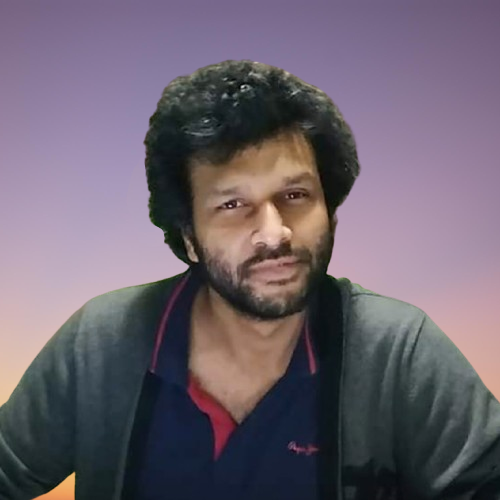Reportage

Photo: UNB
The International Organization for Migration (IOM) is asking for $125 million to support 1.4 million Rohingya refugees, and host communities in need in Cox's Bazar as the response to the Rohingya refugee crisis drags on for a sixth year in 2023.
Over 900,000 Rohingya refugees sought temporary shelter in Cox's Bazar in the wake of the latest influx in 2017 - one of the largest as well as fastest displacements of people witnessed in modern times. They were fleeing a deadly, at times genocidal 'clean up operation' conducted by the Myanmar army, aka Tatmadaw, in a clearly disproportionate response to attacks on police by some fringe elements of the Rohingya population.
The Bangladeshi government and the wider international community have supported them, alongside a good half-a-million or so residual from earlier waves, throughout the ensuing period. And the Rohingyas must continue to receive ongoing help until they may freely return to Myanmar in a secure and dignified manner, IOM said in its literature soliciting donations.
Along with other humanitarian organisations, it has been providing lifesaving, protection and assistance services to the refugee community for the last six years.
"The ongoing crises and disasters around the world should not make us forget the needs of Rohingya refugees and the response in Bangladesh," said António Vitorino, IOM director general. "We earnestly urge the international community to step up their efforts to ensure the Rohingya refugees continue to receive the support they need."
The Joint Response Plan (JRP) for the Rohingya Humanitarian Crisis, which includes over 100 response players made up of UN agencies and local NGOs and INGOs, includes the IOM's appeal.
Under the JRP for 2023, which was launched this week (Mar. 7) with the Government of Bangladesh, these humanitarian players are attempting to raise a total of more than $876 million.
In order to put that in context, we should note that the JRP for 2022 amounted to $881 million, and less than half that amount was disbursed. The expectation is that the 2023 response will be even worse.
The World Food Programme (WFP), another UN agency, has already been forced to cut food rations for camp residents by 17% from March 1, from $12 per head to $10 per person.
Refugee protection is a top priority for IOM. It works with vulnerable people and at the community level to reduce the risks of gender-based violence and the physical, psychosocial, and social vulnerabilities of child and human trafficking in order to protect the most vulnerable, especially women and children who make up over 75% of the population.
"Our priorities for 2023 include the continuation of providing life-saving assistance and protection of the Rohingya refugees and support for vulnerable host community members," said Abdusattor Esoev, IOM Bangladesh chief of mission.
"We call on the international community to contribute generously to our efforts to help these refugees and not forget the plight of the Rohingya in Bangladesh," he added.
US, UK respond to JRP
Both the United States and the United Kingdom, both vital to the response, have in the last few hours released statements in response to the launch of the 2023 JRP.
While London kept its wallet closed, Washington announced a new, small amount it would be disbursing on top of earlier commitments. Both power centres however, seem to be converging on an interesting alternative course to deal with the issue.
That would seem to involve persuading the Bangladeshi hosts to be more accommodating of the Rohingyas, even outside the camps - for job opportunities, or to even support themselves.
The UK's response was delivered in Geneva by Simon Manley, the country's ambassador to the UN missions in that city.
He said the UK sees an urgent need to work pragmatically with the Government of Bangladesh, to find a sustainable way forward that "offers the Rohingya more self-reliance, and less dependence on humanitarian aid."
The statement also sought to "achieve maximum effect with every pound, euro or dollar we spend."
The US statement was delivered virtually by Assistant Secretary Julieta Valls Noyes. In it, she said the United States will contribute "nearly $26 million dollars in new humanitarian assistance for Rohingya refugees".
This would be on top of an earlier commitment of $75 million towards JRP 2023, announced in January.
Noyes then called on Bangladesh "to reexamine its restrictions on allowing refugees to earn a living."
"Restrictions on livelihoods deny Rohingya the ability to provide for themselves and the sense of purpose many of us get from our vocations," the statement continued, falling in with the UK's theme. "These restrictions prevent Rohingya from contributing to the communities that generously welcomed them and limit the chances of a sustainable, voluntary repatriation."
Noyes ended by saying the United States would be "among the countries now welcoming Rohingya from Bangladesh."

























Leave a Comment
Recent Posts
The forensic clean up of the f ...
Much of the coverage centring the surge in Non Performing Loans (NPLs) ...
Hong Kong’s deadliest fire in ...
Hong Kong’s deadliest fire in decades left at least 44 people de ...
False document submission hurts genuine students’ ch ..
The Missing Ingredients for Peace in Palestine
Songs of Hyacinth Boats & Hands: Reading Conversatio ..
Executive Editor Julie Pace on why AP is standing fo ..